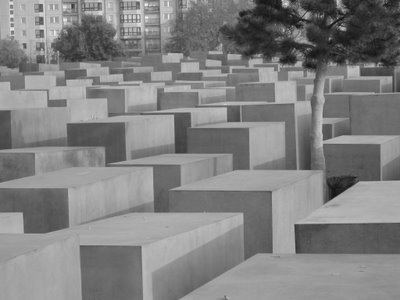Courtesy IGLHRC:
(New York, December 11, 2008) - As the world celebrates the 60th anniversary of the Universal Declaration of Human Rights (UDHR), the UN General Assembly will hear a statement in mid-December endorsed by more than 50 countries across the globe calling for an end to rights abuses based on sexual orientation and gender identity. A coalition of international human rights organizations today urged all the world's nations to support the statement in affirmation of the UDHR's basic promise: that human rights apply to everyone.
Nations on four continents are coordinating the statement, including: Argentina, Brazil, Croatia, France, Gabon, Japan, the Netherlands, and Norway. The reading of the statement will be the first time the General Assembly has formally addressed rights violations based on sexual orientation and gender identity.
"In 1948 the world's nations set forth the promise of human rights, but six decades later, the promise is unfulfilled for many," said Linda Baumann of Namibia, a board member of Pan Africa ILGA, a coalition of over 60 African lesbian, gay, bisexual, and transgender (LGBT) groups. "The unprecedented African support for this statement sends a message that abuses against LGBT people are unacceptable anywhere, ever."
The statement is non-binding, and reaffirms existing protections for human rights in international law. It builds on a previous joint statement supported by 54 countries, which Norway delivered at the UN Human Rights Council in 2006.
"Universal means universal, and there are no exceptions," said Boris Dittrich of the Netherlands, advocacy director of Human Rights Watch's lesbian, gay, bisexual, and transgender rights program. "The UN must speak forcefully against violence and prejudice, because there is no room for half measures where human rights are concerned."
The draft statement condemns violence, harassment, discrimination, exclusion, stigmatization, and prejudice based on sexual orientation and gender identity. It also condemns killings and executions, torture, arbitrary arrest, and deprivation of economic, social, and cultural rights on those grounds.
"Today, dozens of countries still criminalize consensual homosexual conduct, laws that are often relics of colonial rule," said Grace Poore of Malaysia, who works with the International Gay and Lesbian Human Rights Commission. "This statement shows a growing global consensus that such abusive laws have outlived their time."
The statement also builds on a long record of UN action to defend the rights of lesbian, gay, bisexual, and transgender people. In its 1994 decision in Toonen v. Australia, the UN Human Rights Committee - the body that interprets the International Covenant on Civil and Political Rights (ICCPR), one of the UN's core human rights treaties - held that human rights law prohibits discrimination based on sexual orientation. Since then, the United Nations' human rights mechanisms have condemned violations based on sexual orientation and gender identity, including killings, torture, rape, violence, disappearances, and discrimination in many areas of life. UN treaty bodies have called on states to end discrimination in law and policy.
Other international bodies have also opposed violence and discrimination against LGBT people, including the Council of Europe and the European Union. In 2008, all 34 member countries of the Organization of American States unanimously approved a declaration affirming that human rights protections extend to sexual orientation and gender identity.
"Latin American governments are helping lead the way as champions of equality and supporters of this statement," said Gloria Careaga Perez of Mexico, co-secretary general of ILGA. "Today a global movement supports the rights of lesbian, gay, bisexual, and transgender people, and those voices will not be denied."
So far, 55 countries have signed onto the General Assembly statement, including: Andorra, Armenia, Australia, Bosnia and Herzegovina, Canada, Cape Verde, the Central African Republic, Chile, Ecuador, Georgia, Iceland, Israel, Japan, Liechtenstein, Mexico, Montenegro, New Zealand, San Marino, Serbia, Switzerland, the Former Yugoslav Republic of Macedonia, Uruguay, and Venezuela. All 27 member states of the European Union are also signatories.
"It is a great achievement that this initiative has made it to the level of the General Assembly," said Louis-Georges Tin of France, president of the International Committee for IDAHO (International Day against Homophobia), a network of activists and groups campaigning for decriminalization of homosexual conduct. "It shows our common struggles are successful and should be reinforced."
"This statement has found support from states and civil society in every region of the world," said Kim Vance of Canada, co-director of ARC International. "In December a simple message will rise from the General Assembly: the Universal Declaration of Human Rights is truly universal."
The coalition of international human rights organizations that issued this statement include: Amnesty International; ARC International; Center for Women's Global Leadership; COC Netherlands; Global Rights; Human Rights Watch; IDAHO Committee; International Gay and Lesbian Human Rights Commission (IGLHRC); International Lesbian, Gay, Bisexual, Transgender and Intersex Association (ILGA); and Public Services International.
(New York, December 11, 2008) - As the world celebrates the 60th anniversary of the Universal Declaration of Human Rights (UDHR), the UN General Assembly will hear a statement in mid-December endorsed by more than 50 countries across the globe calling for an end to rights abuses based on sexual orientation and gender identity. A coalition of international human rights organizations today urged all the world's nations to support the statement in affirmation of the UDHR's basic promise: that human rights apply to everyone.
Nations on four continents are coordinating the statement, including: Argentina, Brazil, Croatia, France, Gabon, Japan, the Netherlands, and Norway. The reading of the statement will be the first time the General Assembly has formally addressed rights violations based on sexual orientation and gender identity.
"In 1948 the world's nations set forth the promise of human rights, but six decades later, the promise is unfulfilled for many," said Linda Baumann of Namibia, a board member of Pan Africa ILGA, a coalition of over 60 African lesbian, gay, bisexual, and transgender (LGBT) groups. "The unprecedented African support for this statement sends a message that abuses against LGBT people are unacceptable anywhere, ever."
The statement is non-binding, and reaffirms existing protections for human rights in international law. It builds on a previous joint statement supported by 54 countries, which Norway delivered at the UN Human Rights Council in 2006.
"Universal means universal, and there are no exceptions," said Boris Dittrich of the Netherlands, advocacy director of Human Rights Watch's lesbian, gay, bisexual, and transgender rights program. "The UN must speak forcefully against violence and prejudice, because there is no room for half measures where human rights are concerned."
The draft statement condemns violence, harassment, discrimination, exclusion, stigmatization, and prejudice based on sexual orientation and gender identity. It also condemns killings and executions, torture, arbitrary arrest, and deprivation of economic, social, and cultural rights on those grounds.
"Today, dozens of countries still criminalize consensual homosexual conduct, laws that are often relics of colonial rule," said Grace Poore of Malaysia, who works with the International Gay and Lesbian Human Rights Commission. "This statement shows a growing global consensus that such abusive laws have outlived their time."
The statement also builds on a long record of UN action to defend the rights of lesbian, gay, bisexual, and transgender people. In its 1994 decision in Toonen v. Australia, the UN Human Rights Committee - the body that interprets the International Covenant on Civil and Political Rights (ICCPR), one of the UN's core human rights treaties - held that human rights law prohibits discrimination based on sexual orientation. Since then, the United Nations' human rights mechanisms have condemned violations based on sexual orientation and gender identity, including killings, torture, rape, violence, disappearances, and discrimination in many areas of life. UN treaty bodies have called on states to end discrimination in law and policy.
Other international bodies have also opposed violence and discrimination against LGBT people, including the Council of Europe and the European Union. In 2008, all 34 member countries of the Organization of American States unanimously approved a declaration affirming that human rights protections extend to sexual orientation and gender identity.
"Latin American governments are helping lead the way as champions of equality and supporters of this statement," said Gloria Careaga Perez of Mexico, co-secretary general of ILGA. "Today a global movement supports the rights of lesbian, gay, bisexual, and transgender people, and those voices will not be denied."
So far, 55 countries have signed onto the General Assembly statement, including: Andorra, Armenia, Australia, Bosnia and Herzegovina, Canada, Cape Verde, the Central African Republic, Chile, Ecuador, Georgia, Iceland, Israel, Japan, Liechtenstein, Mexico, Montenegro, New Zealand, San Marino, Serbia, Switzerland, the Former Yugoslav Republic of Macedonia, Uruguay, and Venezuela. All 27 member states of the European Union are also signatories.
"It is a great achievement that this initiative has made it to the level of the General Assembly," said Louis-Georges Tin of France, president of the International Committee for IDAHO (International Day against Homophobia), a network of activists and groups campaigning for decriminalization of homosexual conduct. "It shows our common struggles are successful and should be reinforced."
"This statement has found support from states and civil society in every region of the world," said Kim Vance of Canada, co-director of ARC International. "In December a simple message will rise from the General Assembly: the Universal Declaration of Human Rights is truly universal."
The coalition of international human rights organizations that issued this statement include: Amnesty International; ARC International; Center for Women's Global Leadership; COC Netherlands; Global Rights; Human Rights Watch; IDAHO Committee; International Gay and Lesbian Human Rights Commission (IGLHRC); International Lesbian, Gay, Bisexual, Transgender and Intersex Association (ILGA); and Public Services International.
(New York, December 19, 2008) - In a powerful victory for the principles of the Universal Declaration of Human Rights, 66 nations at the UN General Assembly yesterday supported a groundbreaking statement confirming that international human rights protections include sexual orientation and gender identity. It is the first time that a statement condemning rights abuses against lesbian, gay, bisexual, and transgender people has been presented in the General Assembly.
The statement drew unprecedented support from five continents, including six African nations. Argentina read the statement before the General Assembly. A cross-regional group of states coordinated the drafting of the statement, also including Brazil, Croatia, France, Gabon, Japan, the Netherlands, and Norway.
The statement drew unprecedented support from five continents, including six African nations. Argentina read the statement before the General Assembly. A cross-regional group of states coordinated the drafting of the statement, also including Brazil, Croatia, France, Gabon, Japan, the Netherlands, and Norway.
The 66 countries reaffirmed "the principle of non-discrimination, which requires that human rights apply equally to every human being regardless of sexual orientation or gender identity." They stated they are "deeply concerned by violations of human rights and fundamental freedoms based on sexual orientation or gender identity," and said that "violence, harassment, discrimination, exclusion, stigmatization and prejudice are directed against persons in all countries in the world because of sexual orientation or gender identity."
The statement condemned killings, torture, arbitrary arrest, and "deprivation of economic, social and cultural rights, including the right to health." The participating countries urged all nations to "promote and protect human rights of all persons, regardless of sexual orientation and gender identity," and to end all criminal penalties against people because of their sexual orientation or gender identity.
According to calculations by ILGA (the International Lesbian, Gay, Bisexual, Transgender and Intersex Association) and other organizations, more than six dozen countries still have laws against consensual sex between adults of the same sex. The majority of these laws were left behind by colonial rulers (http://www.hrw.org/en/reports/2008/12/17/alien-legacy-0 ). The UN Human Rights Committee, which interprets the International Covenant on Civil and Political Rights (ICCPR), a core UN treaty, held in a historic 1994 decision that such laws are rights violations - and that human rights law forbids discrimination based on sexual orientation.


No comments:
Post a Comment